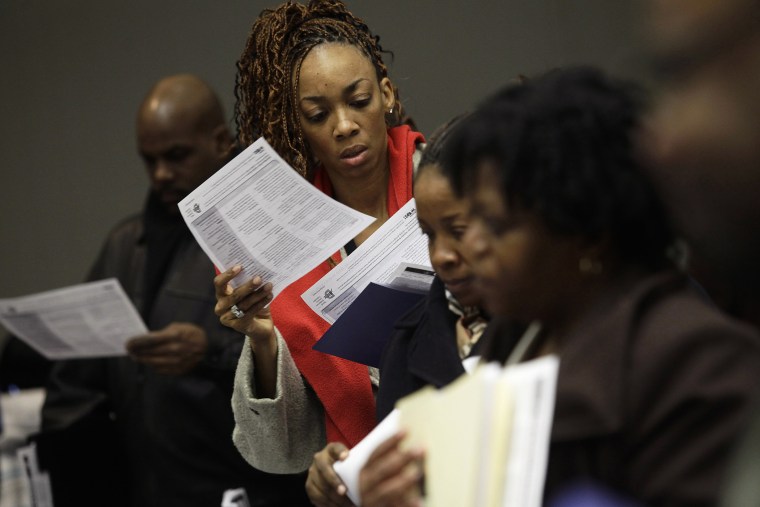A recent report released by Rep. Paul Ryan, R.-Wisc., argued that programs to help jobless people discourage them from seeking work. Sen. Rand Paul, R.-Ky., has made the argument specifically against extending unemployment insurance: “The longer you have it … it provides some disincentive to work.”
No one disputes this logic, but balanced against this consideration are the economic and humanitarian benefits to helping displaced workers in a weak economy. The real question isn’t whether the disincentive exists; it’s whether its effects are small or large. The latest unemployment numbers suggest the effects are so small as to be invisible to the naked eye.
In general, the number of long-term unemployed (i.e., those out of work for more than six months -- a group that accounts for more than one-third of all unemployed) has been declining, albeit slowly, since 2010. If a succession of UI extensions hadn’t been enacted, long-term unemployment might have declined faster, or it might not; we don’t know, because no hard data exist for this alternative universe.
What we do know is that the last of these UI extensions expired at the end of 2013. And so far, there’s been no visible effect.
To be sure, in January the number of long-term unemployed declined by 232,000, following more than half a year of no significant month-to-month change. (The most recent previous change of any magnitude -- a decline of 258,000 -- occurred in April 2013.)
But if that 232,000 drop had reflected a decision by thousands of workers suddenly without unemployment benefits to finally get off their duffs and find a job, the trend wouldn’t have abruptly reversed itself the very next month, when the number of long-term unemployed shot up by 203,000. This during a time when, according to the National Employment Law Project, about 72,000 long-term unemployed workers were losing their unemployment benefits each week.
Even when the number of long-term unemployed goes down, that doesn’t necessarily mean all these unemployed have gotten themselves jobs. It’s just as likely -- indeed, according to some recent studies, much more likely—that they have decided to give up on finding a job altogether, thereby removing themselves from unemployment statistics. (Though one hopeful finding in the new unemployment data is that the overall number of so-called “discouraged workers” has actually been declining since December -- a development attributable not to any change in social welfare policy but to an economy that’s improving, albeit at a snail’s pace.)
In sum, the GOP’s tough-love stimulus of allowing long-term UI benefits to expire has produced no detectable effect on employment, or improvement of any other kind, for the long-term unemployed. We can allow this cruel experiment to continue, but the only group likely to benefit would be congressional Democrats eager to use UI benefit cancellation against the Republicans in the next midterm election. A better solution would be to restore long-term UI benefits to the two million people (including 200,000 veterans) who’ve lost them.
